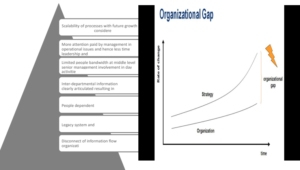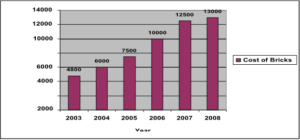On the Initiative of “Indian Institution of Technical Arbitrators (IITArb)”, Karnataka State centre, Bengaluru
Scheme/ Line of Presentation
- The Genesis / Brief History of Arbitration in India
- About Arbitration in India at present
- Major & Important Sections in the Governing Act for Arbitration in India (The A&C Act, 1996)
- The Amendments to The A&C Act, 1996
- The Conundrum in latest amendment
- Question & Answers
Genesis/Brief History of Arbitration in India
• “Brihadaranyaka Upanishad” is the earliest known treaty as per Hindu Law. It mentions three types of popular courts namely (i) “Puga” – the local courts; (ii) “Srenas” – same business or profession; (iii) “Kulas” – members concerned with the social matters of particular community
• During Colonial rule, the Government courts accepted only those cases not settled by the popular courts.
• The next known formal rule for arbitration is of the Bengal Regulations Act 1772, framed by the then East India Company. It provided for reference by a court to arbitration, with the consent of the parties, in lawsuits for accounts, partnership deeds, and breach of contract, amongst others.
• During the British introduced on 1st rule, the first arbitration act was July 1899 which was founded on English Arbitration Act 1889.
• The 1899 act was applicable to the then presidency towns of Bombay, Calcutta and Madras
• The uniqueness was that the name of arbitrator(s) had to be mentioned in the agreement itself.
• The arbitrator could be a sitting judge of any court.
• It was very complex, bulky and needed reforms.
• A formal & more exhaustive law on arbitration came into force in 1940, named as “The Arbitration Act 1940” to deal with domestic arbitrations. It applied to whole of India.
• The award was to be filed in the appropriate court to make it a decree.
• Rules for filing award deferred from one high court to another.
• There were many shortcomings like no provision for appointment of new arbitrator when court appointed arbitrator died during the arbitration proceedings.
• There was no provision to prohibit an arbitrator to resign at any
time.
• After Independence, several declarations and ordinances were passed by Government to meet the increasing demands for justice.
• In the year 1996, a more comprehensive Act, termed as “The Arbitration & Conciliation Act, 1996” came into existence (with effect from 25.01.1996). It is the principal act applicable to all arbitration cases held in India at present.
• It was modelled on the lines of UNCITRAL but with many deviations
mainly to keep the courts’ interventions atbay.
• It contains four parts viz.
• Part I : General provision on Domestic Arbitration (S. 1 to 43)
• Part II : Enforcement of Foreign Awards (S. 44 to 60)
• Part III : Conciliation (S. 61 to 81)
• Part IV : Supplementary Provisions (S. 82 to 86) – Section 87 was introduced in the 2015 amendment to give prospective effect of amendments from 23.10.2025 and the 3 Judges Bench of Supreme Court in Hindustan Construction Company Ltd. v. Union of India, 2019 SCC OnLine SC 1520, decided on 27.11.2019, proposed to strike it down.
About Arbitration in India at present
• Arbitration is one of the various modes/methods of Alternate Dispute Resolutions (ADR) in India and abroad.
• It is the most preferred one since the same as statutory & legal framework and mandate.
• It is not compulsory unless agreed by the parties, however, under S. 89 of CPC (amended in 1999), the courts, when approached by any party, can refer the disputes (which are having elements of possible settlement) to arbitration.
• It is a quasi judicial process and like a private court. The arbitrator(s) is like judge but appointed by the parties to dispute or by the Competent Court in case the parties fail to appoint within the time limit indicated in the contract or theAct.
• It is supposed to be the speedy, cost effective and convenient one,
at least in the initial days.
• The arbitration proceedings culminates into the decision of the AT, termed as “Award”.
• The Award is binding on the parties as per the provision in agreements but strangely, the contract provision is superfluous to section 34 & 37 of A&C Act.
• The Act provides lot of freedom to parties and the arbitrators in respect of conducting the proceedings.
• The AT is the creature of agreement and hence bound by the expressed and implied provision in the agreement, also bound by the applicable substantive laws as per S. 28 of the Act.
• The AT has power to rule on its own jurisdiction in addition to rule on any other objection w.r.t. existence or validity of the arbitration agreement raised by the parties to arbitration as per S. 16 of the Act.
• Part I of A&C Act duly amended 2015, 2019 & 2021 is applicable to all domestic commercial arbitration and also to the International commercial arbitration when their seat of arbitration is in India.
• The disputes that are not arbitrable as per Indian Laws are:
• Criminal offences.
• Matrimonial disputes.
• Guardianship matters.
• Insolvency petitions.
• Testamentary suits.
• Trust disputes.
• Labour and industrial disputes.
• Tenancy and eviction matters governed by rent controlstatutes.
The Supreme Court recently held in a case (Vidya Drolia v Durga Trading Corporation, Civil Appeal No.2402 company” disputes are not arbitrable of 2019), that “intra-company”disputesarenot arbitrable.
Major & Important Sections in the Governing Act for Arbitration in India (The A&C Act, 1996)
While all sections and subsections of the Act are important for the efficient, effective and successful conduct of Arbitration, the following ones are major and important.
• Section 4: Waiver of Right to Object
• Section 5: Extent of Judicial Intervention
• Section 7: Arbitration Agreement
• Section 8: Power of Court to refer the parties to arbitration where there is arbitration agreement
• Section 9: Interim measures by court
• Section 11: Appointment of Arbitrators
• Section 16: Competence of AT to rule on its jurisdictions
• Section 17: Interim measures ordered by AT
• Section 18: Equal treatment of parties
• Section 20: Place of arbitration
• Section 21: Commencement of Arbitral Proceedings
• Section 23: Statement of claim and defence
• Section 24: Hearing and writtenproceedings
• Section 25: Default of a Party
• Section 26: Expert appointment by arbitral tribunal
• Section 27: Court assistance in taking evidence
• Section 28: Rules applicable to substance of dispute.
• Section 29 A: Time limit for arbitralaward.
• Section 29 B: Fast track procedure
• Section 30: Settlement through other means during arbitral proceedings.
• Section 31A: Regime for costs
• Section 32: Termination of proceedings
• Section 33: Correction and interpretation of award; additional award.
• Section 34: Application for setting aside arbitral award
• Section 36: Enforcement
• Section 37: Appealable orders
• Section 42: Jurisdictions
• Section 43: Limitations
The Amendments to The A&C Act, 1996 – 2015 Amendment
• Effective from 23.10.2015.
• All arbitrations commenced prior to effective date are governed by provisions in the Principal Act of 1996 only unless the parties agree to the contrary.
• It is a major overhaul to meet the considered and constant demands of Bar and Bench in the country. It is done to rectify many conflicting judgements of some high courts and supreme court on the existing provisions in the Principal Act.
• A total of 21 Amendments to the existing provisions were made and 07 new subsections added including Fourth Schedule for Fees structure)
- The term ‘Court’, as defined under Section 2(1)(e) of the Act, has been amended to include High Courts having jurisdiction to hear appeals from decrees of courts subordinate to it. This amendment is in relation to International Commercial Arbitrations and more specifically to High Courts which do not exercise Ordinary Original Civil Jurisdiction (Delhi, Mumbai, Kolkata & Chennai)
- Amendment to Section 2(2) extending the applicability of Sections 9, 27 and (37) (1) (a) & (3) contained in Part I of the A&C Act to International commercial arbitrations. Section 9 deals with interim relief granted by the courts and Section 27 deals with court assistance to a tribunal for taking evidence
- Amendment to Section 8 which allows even non-signatories to an arbitration agreement to be joined as parties in a domestic arbitration. The amendment effectively negates the decision of the Supreme Court in Sukanya Holdings v Jayesh H Panda 2003 (5) SCC 531, where it had ruled that joinder of non- signatories to an arbitration agreement was not permissible. Further, amendment to Section 8 requires that the judicial authority compulsorily refer parties to arbitration irrespective of any decision by the Supreme Court or any other court, if the judicial authority finds that a valid arbitration clause exists. The amendment essentially nullifies the judgment of the Supreme Court in N. Radhakrishnan v Maestro Engineers 2010
1 SCC 72, where it had ruled that serious allegations of fraud are not arbitrable. - The amendment will also have implications for the Supreme Court’s decision in Booz Allen Hamilton v SBI Home finance (2011)
5 SCC 53 wherein it had listed disputes that were not arbitrable - Section 9(2) of the Act now provides that the arbitration has to commence within a period of 90 days from the date on which an order under Section 9 has been obtained by a party or within such further time as the court may determine
- The amendment to Section 11 of the Act provides that the court while considering an application under Sections 11(4), 11(5) or 11(6), shall notwithstanding any judgment, decree or order of any court, confine itself only to the existence of an arbitration agreement. The amendments to this Section further provides that before appointing an arbitrator, the court shall seek a disclosure in writing from the prospective arbitrator to clarify any justifiable doubts as regards his independence or impartiality
The Amendments to The A&C Act, 1996 – 2015 Amendment – (contd…)
- The amendments to Section 11 of the Act also provides that in cases where an arbitrator has to be appointed for an International Commercial Arbitration, the court for such purposes shall be the Supreme Court. The amendment further provides that all applications under Section 11 for appointment of an arbitrator shall be disposed off within 60 days
- With a prime focus to make arbitrations more economical, the Amendment has followed the footsteps of various arbitration institutions and has now provided for a fee structure to be followed as regards the payment of fees to the arbitral tribunal with a maximum fee cap of INR 30,000,00 (Indian Rupees Thirty Lakh Only) in cases where the commercial value of the dispute exceeds INR 20,00,00,000 (Indian Rupees Twenty Crore Only). The same has been provided for under Section 11(14) of the Act and further in the Fourth Schedule to the Amendment.
The Amendments to The A&C Act, 1996 – 2015 Amendment – (contd…)
- The High Courts are empowered to frame necessary rules in this regard keeping in mind Schedule IV to the Act, which contains a model fee structure. Fees range from Rs 45,000 to Rs 19,87,500 depending upon the quantum of the dispute. This does not apply to international commercial arbitrations and institutional arbitrations.
- Section 12(1) of the Act now requires for disclosure to be made by the arbitrator proposed to be appointed, in writing, as to the existence of any direct or indirect relationship with the parties or interest in the subject matter of dispute, which may give rise to any justifiable doubts as regards his independence and impartiality
The Amendments to The A&C Act, 1996 – 2015 Amendment – (contd…)
- The Amendment seeks to expand the scope of Section 17 of the Act by giving the tribunal the power to provide interim measures, if applied for, even after the making of the award, but before it is enforced. The amendment to this Section further provides that all orders passed by the tribunal under this Section, subject to any order passed in an appeal under Section 37 of the Act, shall be deemed to be an order of the court and shall be enforceable in a manner as provided under the CPC, 1908
- A new Section 29 A has been inserted which provides that an award shall be made by the tribunal within a period of 12 months from the date the tribunal enters reference*. It further provides that the parties, may by consent, extend the period for a further period not extending 6 months.
- This has been further amended for the commencement date as Completion of Pleadings; not more than 6 months
The Amendments to The A&C Act, 1996 – 2015 Amendment – (contd…)
- This Section also provides for a penalty to be imposed on the arbitrator by way of reduction of fees up to 5% per month, in cases where the timeline as specified under this section has not been adhered to by the tribunal. It also empowers the court to (in such cases), terminate the mandate of the tribunal and substitute them with another tribunal and enable the proceedings to continue from the stage where the mandate had been terminated. The Arbitral Tribunal is required, as far as possible, to hold day to day hearings for evidence or oral arguments and not grant adjournment without sufficient cause.
- Section 29B, again in continuation to the new Section 29 A of the Act provides for a fast track procedure of arbitration. This procedure, if adopted by the parties, provides that the arbitration shall decide the dispute and pass an award within 6 months from the date of reference for which additional fees to the extent of 25% extra is payable..
The Amendments to The A&C Act, 1996 – 2015 Amendment – (contd…)
- The Amendment through Section 31(A) also introduces an expansive cost regime. The new provision lays down various factors to be considered by the tribunal at the time of determining the quantum of costs, these include the result of the case and the conduct of parties.
- An amount awarded by the arbitral tribunal will, unless otherwise specified by the arbitral tribunal, carry interest at 2% p.a. more than the current rate of interest (means the highest of the maximum rates at which interest may be paid on different classes of deposits (other than
those maintained in savings account or those maintained by charitable or religious institutions) in accordance with the directions issued by the Reserve Bank of India under the Banking Regulation Act, 1949 (10 of 1949). [Note:
The rate of interest applicable in such cases, prior to the
Amendment was 18 % p.a.] - The Amendment include a new provision as Section 34(2)(b) which provides that an award shall be in conflict with the public policy of India, only if:
The Amendments to The A&C Act, 1996 – 2015 Amendment – (contd…)
a. the making of the award was induced or affected by fraud or corruption or was in violation of Section 75 or 81 of the Act;
b. it is in contravention with the fundamental policy of Indian law;
or
c. it is in conflict with the basic notion of morality or justice.
d. The amendment will neutralize judgments such as ONGC v Saw Pipes (2003) 5 SCC 705 and DDA v R.S. Sharma (2008) 3 SCC 80, which had expanded the scope of Indian public policy under the A&C Act. Similar amendments have also been introduced in S. 48 and S. 57, making the test of public policy a uniform one for domestic and international awards.
The Amendments to The A&C Act, 1996 – 2015 Amendment – (contd…)
- Section 34(2)A has been inserted to include that an award passed in an arbitration other than International Commercial Arbitration, may also be set aside, if the court finds that the award is vitiated by patent illegality
- Section 34 of the A&C Act has been further amended to ensure that a challenge to the award is disposed of by the courts within a period of one (1) year
- The most crucial amendment to the provisions of Section 34 of the Act has been brought out in the newly inserted Section 36(2), which sets out that a mere filing of an application under Section 34 of the Act to set aside the award shall not by itself render the award unenforceable, unless the court grants an order of stay on the operation of the award.
The Amendments to The A&C Act, 1996 – 2015 Amendment – (contd…)
- . A proviso to Section 36(2) has been provided and states that while considering an application for grant of stay of an award for payment of money, the court shall have due regard to the provision for grant of stay of money decree under the Code of Civil Procedure, 1908. {As per 2021 Amendment, this is now subject to scrutiny of court for any prima facie case of fraud or corruption in the making of contract}
- The amendment to clauses (a) and (b) of Section 37(1) of the Act has been broadened to now include the following:
a) Refusing to refer the parties to arbitration under Section 8 of
the Act;
b) Granting or refusing to grant any measure under Section 9 of the Act; and
The Amendments to The A&C Act, 1996 – 2015 Amendment – (contd…)
- With regard to Part II of the Act, the Amendment has provided for very few amendments. The key amendments are only with regard to Sections 47, 48, 56 and 57 of the Act wherein explanations and provisos have been suitably amended to be in consonance with the amendments as made to the provision of Part I of the Act
The Amendments to The A&C Act, 1996 – 2019 Amendment
- Here also, a total of 9 Amendments to the existing provisions were made and 14 new sub-Sections, one new Section (S.87) one new Schedule(Eighth) were added.
- Incorporation of Arbitral Institution: Section 1(ca) has been introduced to define an ‘arbitral institution’ as an arbitral institution designated by the Supreme Court or a High Court under the Act.
- Appointment of Arbitrators under Section 11: The Amendment Act empowers the Supreme Court (in the case of an international commercial arbitration) and the High Court (in cases other than international commercial arbitration) to designate arbitral institutions for the purpose of appointment of arbitrators. Such arbitral institutions will be graded by the Arbitration Council of India (discussed below). Where a graded arbitral institution is not available, the Chief Justice of the concerned High Court may maintain a panel of arbitrators for
discharging the functions and duties of the arbitral institution - In the absence of a procedure to appoint an arbitrator or failure of such procedure under the agreement, the appointment will be made by the arbitral institution designated by the Supreme Court or the High Court, as the case may be. The application for appointment of an arbitrator will be disposed of by the arbitral institution within a period of thirty days from the date of service of notice on the opposite party. The arbitral institution will determine the fees of the arbitral tribunal and the manner of its payment to the arbitral tribunal subject to the rates specified in the Fourth Schedule to the Act.
- Introduction of Arbitration Council: Part 1A has introduced the concept of an Arbitration Council of India (‘Council’), which will be established by a notification by the Central Government, and will have its headquarters in Delhi.
- The composition of the Council will include a Chairperson who is a Judge of the Supreme Court/ Chief Justice of a High Court/Judge of a High Court or an eminent person, having special knowledge and experience in the conduct or administration of arbitration, who will be appointed by the Central Government in consultation with the Chief Justice of India. The other Members of the Council will include an eminent arbitration practitioner and an eminent academician. The ex-officio Members of the Council will include the Secretary to the Government of India in the Department of Legal Affairs, Ministry of Law and Justice and Secretary to the Government of India in the Department of Expenditure, Ministry of Finance or their respective representatives not below the rank of Joint Secretary. One representative of a recognised body of commerce and industry will be a part time member.
- The Council will, inter alia, promote and encourage arbitration, mediation, conciliation or other alternative dispute resolution mechanisms and for that purpose, will frame policy and guidelines for the establishment, operation and maintenance of uniform professional standards in respect of all matters relating to arbitration. The Council will also frame policies governing the grading of arbitral institutions and arbitrators and recognise professional institutes providing accreditation of arbitrators.
- Grading of Arbitral Institutions and Arbitrators: The Council will make grading of arbitral institutions on the basis of criteria relating to infrastructure, quality and calibre of arbitrators, performance and compliance of time limits for disposal of domestic or international commercial arbitrations, in such manner as may be specified by the regulations under the Act. The qualifications, experience and norms for accreditation of arbitrators will be such as specified in the Eighth Schedule to the Act.
- Timelines under the Amendment Act :
• Completion of pleadings: Section 23 has been amended to state that the statement of claim and defence must be completed within a period of six months from the date the arbitrator or all the arbitrators (as the case may be) received notice, in writing, of their appointment.
• Arbitral award: In cases other than international commercial arbitration, the award will be made by the arbitral tribunal within a period of twelve months from the date of completion of pleadings. In the case of international commercial arbitrations, the award may be made as expeditiously as possible and endeavour may be made to dispose of the matter within a period of twelve months from the date of completion of pleadings.
• Extension of time: Where an application for extension of time is pending, the mandate of the arbitrator will continue till the disposal of the said application.
- Amendment to Section 34 : Section 34(2) of the Act replaces the words “furnishes proof that”, with “establishes on the basis of the record of the arbitral tribunal that”, to clarify that the parties must rely on the record before the arbitral tribunal alone at the time of challenge of an award.
- Amendment to Section 45 : Section 45 of the Act, under Part II (power of Courts to refer the matter to arbitration unless it finds that the arbitration agreement is null and void, inoperative and incapable of being performed) has been amended to substitute the words “unless it finds”, with the words “unless it prima facie finds”.
• Qualifications and Experience of Arbitrators – S. 42J
• The Restrictive Provision has been done away in the 2021 and the Eight Schedule introduced in this Amendment has been omitted, hence not elaborated here
- Confidentiality of the Arbitration Proceedings – S. 42A
• The arbitrator, the arbitral institution and the parties to the arbitration agreement must maintain confidentiality of all arbitral proceedings except the award where its disclosure is necessary for the purpose of implementation and enforcement of award. - Application of the Arbitration and Conciliation (Amendment) Act, 2015 – S. 87
• It has been clarified that unless the parties otherwise agree, the amendments made to the Act by the Arbitration and Conciliation (Amendment) Act, 2015 will not apply to the arbitral proceedings which commenced before the commencement of the Arbitration and Conciliation (Amendment) Act, 2015 i.e., October 23, 2015. This overrules the position laid down by the Supreme Court in BCCI v. Kochi Cricket Private Limited
The Amendments to The A&C Act, 1996 – 2021 Amendment
- Automatic stay on awards: The 1996 Act allowed a party to file an application to set aside an arbitral award (i.e., the order given in an arbitration proceeding). Courts had interpreted this provision to mean that an automatic stay on an arbitral award was granted the moment an application for setting aside an arbitral award was made before a court. In 2015, the Act was amended to state that an arbitral award would not be automatically stayed merely because an application is made to a court to set aside the arbitral award.
- The Amendment specifies that a stay on the arbitral award can be provided (even during the pendency of the setting aside of the application) if the court is satisfied that:
(i) the relevant arbitration agreement or contract, or
(ii) the making induced, or effected by fraud or corruption. effective from October 23, 2015. of the award, was This change will be
The Amendments to The A&C Act, 1996 – 2021 Amendment
- Qualifications of arbitrators: The Amendment of 2015 specified certain qualifications, experience, and accreditation norms for arbitrators in a separate schedule. The requirements under the schedule include that the arbitrator must be: (i) an advocate under the Advocates Act, 1961 with 10 years of experience, or (ii) an officer of the Indian Legal Service, among others. Further, the general norms applicable to arbitrators include that they must be conversant with the Constitution of India. The Amendment removes the Schedule for arbitrators qualifications, experience, and norms and states that the for accreditation of arbitrations will be specified under the regulations.





